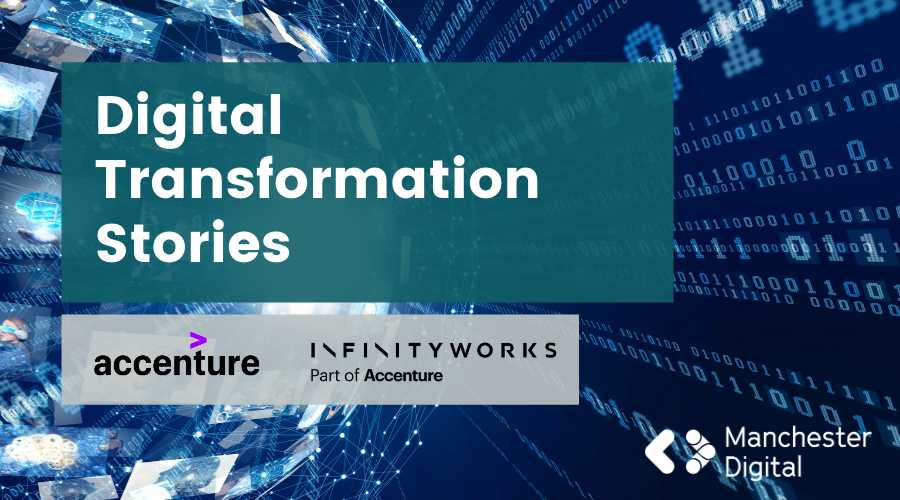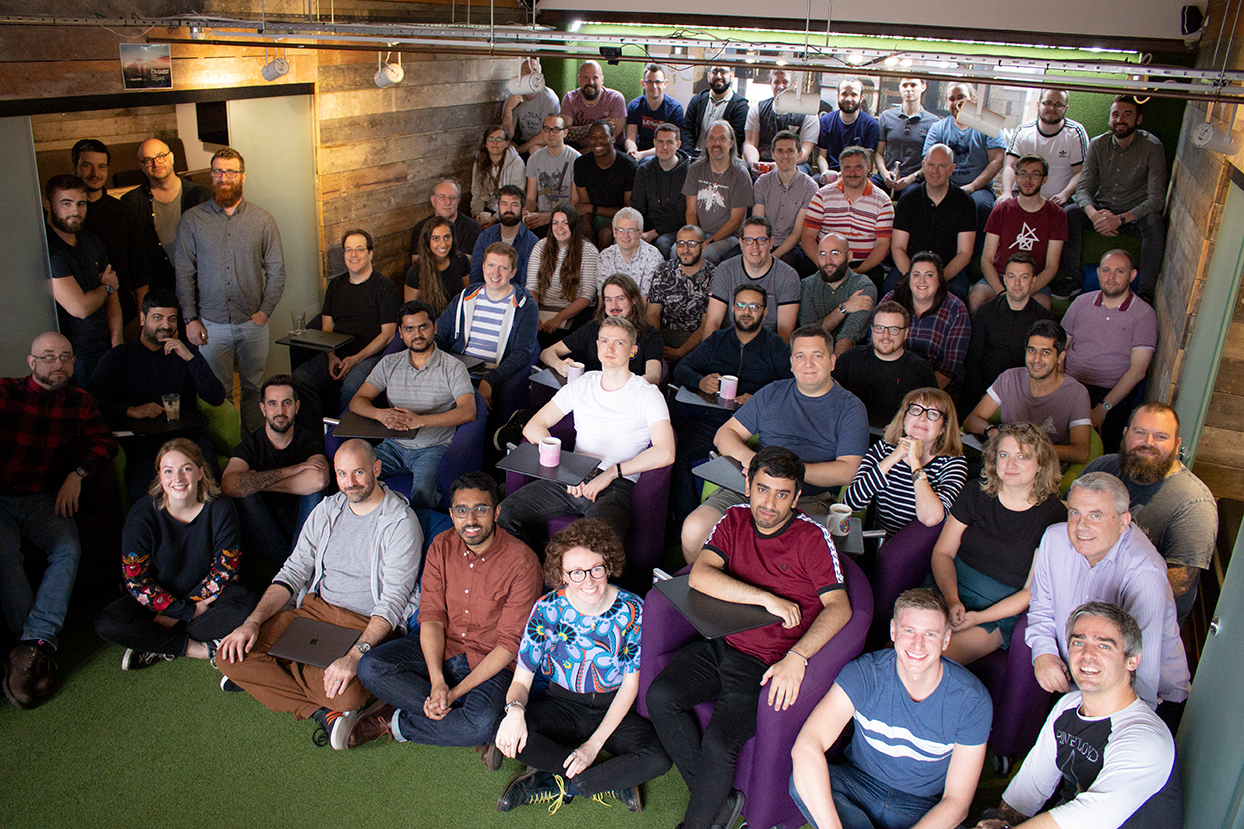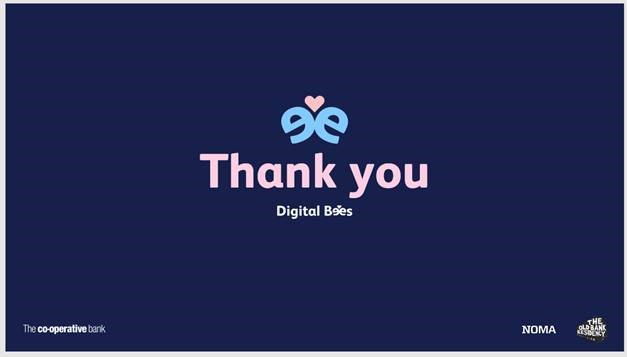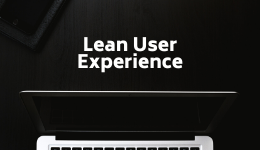
Digital Transformation Stories is a new series of interviews Manchester Digital is conducting with our members, ranging from those who help facilitate digital transformation processes to those who have been through or are going through a transformation themselves, to find out more about their experiences of digital transformations and share their advice. For this first edition of the series, we spoke to Accenture and Infinity Works.
Colin Ellam leads Accenture’s Capital Projects Practice in the UK and Ireland (UK&I), as well as Accenture in the North West. Day to day he works with organisations wanting to build and operate large complex assets such as power stations, industrial plant, public infrastructure and smart cities. He also has a real passion for the development of the region, so that individuals and communities are given the opportunity to thrive.
Rick Boyce is responsible for Infinity Works engineering and delivery teams in the North West, helping to make technology work for businesses by ensuring a focus on people. Rick works to continually support the growth of Infinity Works by maintaining its high standards for successful delivery. He is passionate about the diverse tech scene and people in Manchester, and helping organisations across the country benefit from the incredible capabilities for digital transformation that Manchester and the North West have to offer.

Colin Ellam (left) and Rick Boyce (right)
Accenture recently acquired Infinity Works to expand its Cloud First offerings and engineering capabilities in the UK.
Could you tell us about your organisation and how you support businesses which are going through a digital transformation?
CE: Digital transformation is at the very heart of Accenture’s purpose – to deliver on the promise of technology and human ingenuity, by embracing the power of change.
As a global company we work collaboratively with our clients around the world to support their digital journeys. We combine upfront consulting skills to help define the future business and map out that change journey, with deep skills in technology to ensure that change is enduring. We work with an extensive ecosystem of partners to be able to provide full-service technology and business capabilities to our clients.
What impact do you think the Covid-19 pandemic has had on how businesses approach digital transformation, and what trends do you think we’ll see fuelling digital transformations post-pandemic?
CE: At the beginning of 2020, as the COVID-19 crisis unfolded, businesses started accelerating their digital transformations to help navigate the human and business impact of the pandemic. Transformations that would take years in some cases, happened almost overnight.
Pre-COVID, there was a massive gap between digital leaders and laggards (according to Accenture’s ‘Future Systems’ report). But that all changed. Whether a leader in digital or not—all businesses have had to accelerate to new levels of digital performance to serve different customer expectations, adapt to the health challenges and to pivot to new growth opportunities. Business as usual is no longer an option.
While it might be tempting for companies to retreat to what they know, 2020 brought the need for a different path to light. If businesses continue to have a clear-eyed perspective and sharp focus on their expedited digital transformations, they can emerge as Masters of Change and the new leaders in the post-COVID era.

What role does culture have to play in digital transformation, and how can businesses create a culture that embraces digital and mitigate risks?
RB: Shortcomings in organisational culture are probably the main barriers to an organisation's digital transformation success. There’s a tendency to focus on digital transformation as something separate from the rest of the business instead of as an empowering and collaborative piece of the larger picture.
To create a culture that supports digital transformation, organisations need to recognise that the core values of agility and communication should be a top priority. Technology is a key component but the relationships between “tech people'' and “business people” is at the heart of making it succeed. These divisions are just a product of poor culture and the first step in true digital transformation is breaking down those barriers. It’s important that organisations commit to great communication and transparency, set a clear vision, and effectively communicate it within the organisation regularly. The people involved in a transformation will do their best work when they see the whole picture and consciously focus their efforts on contributing towards the bigger vision.
In future-ready organisations, employees will be empowered to take ownership of their part of the journey, confident they will drive the organisation toward fulfilling its purpose and vision, creating value quickly, collaboratively, and effectively. Collaboration should be integrated into all aspects of work, this will help shift the culture to one that understands, embraces, and advances the digital transformation.
At Infinity Works (now part of Accenture), digital transformation is the driving force behind everything we do, and our grassroots are in our people. We work hard on developing a culture of fully engaged employees, fostering a desire to learn, share ideas, and ultimately improve processes and skills. We have helped many businesses undergo this transformation and witnessed the game-changing results that it yields when done right. The effect on the people within our customers’ organisations is incredible, and it’s such a privilege for me to see their own transformation and empowerment as well as the success of the customers’ digital transformation journey overall.

How can businesses learn where they should be focusing their efforts and navigate roadblocks?
RB: If your answer to this is ‘the customer’ then you’re already a front-runner. Whereas the quality of service used to be a differentiator, today we all expect ‘great’ as the minimum standard. Organisations need to listen to their customers, understand what they’re looking for, and develop digital transformation strategies aligned to their goals.
You only need to look at the last year to see how the speed of change has rocketed. Consumers, and even employees, now expect to operate on their own terms, no matter the channel. But many organisations are still trapped in legacy business models relying on outdated technologies, structures, and working methods. At Infinity Works, we help organisations accelerate by supporting the move away from these systems through the cloud, enabling our customers to focus on creating business value, free from the shackles of poor infrastructure.
Cross-functional agile teams – managed well – will help navigate roadblocks. They spark innovation, overcome boundaries, and add value to the software development life cycle by granting a more collaborative environment, providing on-time delivery of high-quality solutions. A cross-functional team eliminates conflicting priorities because everyone on the team shares the same goal and understands their contribution in making it happen. Agility helps our customers achieve the digital transformation outcomes they want quickly, but it’s bigger role is in creating flexibility and momentum within the organisation as a whole. Disruption destroys a business that isn’t prepared for it, and it’s happening now thick and fast in more industries than ever. Organisations need to be ready to reshape themselves to face the future. Change always comes with a learning curve, so be prepared to work out some kinks in the process, embrace the failures as opportunities to learn, keep communicating and keep the focus on the overall vision rather than the individual bumps in the road.
How can businesses measure ROI on digital transformation?
RB: The question most organisations will probably ask is “how do you know it’s paying off?”.
Ultimately, this boils down to what you want to achieve by digitally transforming. The key question organisations need to be asking right at the start is: why. By defining a clear objective from the start, and engaging the team around that vision, organisations can develop meaningful KPIs that are relevant and empowering for the business as a whole.
Be judicious in how much you focus on timescales and deadlines. When used right they’re a powerful way to create momentum and progress, but go too far and they’ll become an unhelpful distraction that obscures the real goals the business needs to achieve. Moving into a more digital environment with your workforce is a process that’s going to take time and focus. Keep in mind that the real digital transformation is in your people and your organisational culture, and this is something that can’t easily be mapped to a particular timescale in a lasting way.
How can businesses keep pace with changing technologies to ensure that they're delivering the best possible service?
RB: For me, the question is the wrong way round. Businesses should be focussing on how they can deliver the best possible service, and this will ensure that they keep pace with changing technologies. Digital transformation is not just about getting access to the technology of tomorrow, it's about having a forward-thinking mindset and a company culture which doesn’t stand still but is always looking to the next stage of development.
Organisations should be listening to their customers and leaders should be focusing on customer-facing and growth areas first, as these should help define the new products, customer experiences, and business models. Take Pret, as an example, and what it's done with its subscription idea. Here’s a good example of innovation with purpose. Pret understood what was happening in its sector of the economy and how that would impact the future, and then responded innovatively.
CE: One of the key things that we are also seeing is that today’s C-suite is investing in the latest technology, but they aren’t necessarily unlocking its trapped value in their businesses as they would have expected. Many still struggle to maximise the value from these investments.
We’ve found that growth in every kind of company depends on a systematic and sequential adoption strategy in line with Future Systems—enterprise systems capable of scaling innovations repeatedly and granting organisations the strategic agility they need. New technologies are becoming easier to adopt and existing technologies are being upgraded everyday, so the need for large ‘upgrade’ is diminishing. Moving to the cloud is a game changer with business now able to buy their data storage, platforms and applications as a service giving them the ability to scale up or scale down as the demand requires.
For Accenture, we’re constantly aiming to be two steps ahead so that we can continue to innovate for our clients. In order to do that, we need to ensure we have the right skillsets and capabilities for the future. That’s why we’re investing heavily in new ventures and acquisitions, like Infinity Works, who bring deep cloud and engineering specialisation - a significant step in advancing our Accenture Cloud First strategy and capabilities in the UK.
CE: Always start with your vision of how you want your business to operate, look and feel once you have transformed. Look far and wide, and across multiple industries to understand what good looks like and how it could benefit your future. Then, upskill and align the leadership around this transformation journey and don’t be afraid to challenge every norm in the business from culture, operating model, core business processes and ways of working.
Look ahead to the skills you need within the business and train your people to raise their TQ – Technology Quotient. We’ve been through hiring by IQ (intelligence) and EQ (emotional) and now we need more TQ across our businesses at every level.
RB: What will ultimately define the brands that thrive in the future will be those that not only collaborate from within but those that collaborate with their customers, partners and beyond. Collaboration, at its core, is about developing deep and true understanding; a culture of great collaboration is a sure-fire way to uncover the ways and the means that a business needs to position itself for the future.
The message to businesses is clear: transform in the right ways or become irrelevant and get left behind. Don’t be afraid to challenge the status quo. Organisations that evolve how they work by removing silos, collaborating across functions, focusing on continuous innovation, and coalescing around a strong vision are giving themselves the solid foundations for successful transformation.
Thank you Colin and Rick!
To find out more about Accenture, click here.
To find out more about Infinity Works, click here.
Want to tell your digital transformation story?
If your company would like to feature in a future edition of this series, contact thom@manchesterdigital.com for more information.










